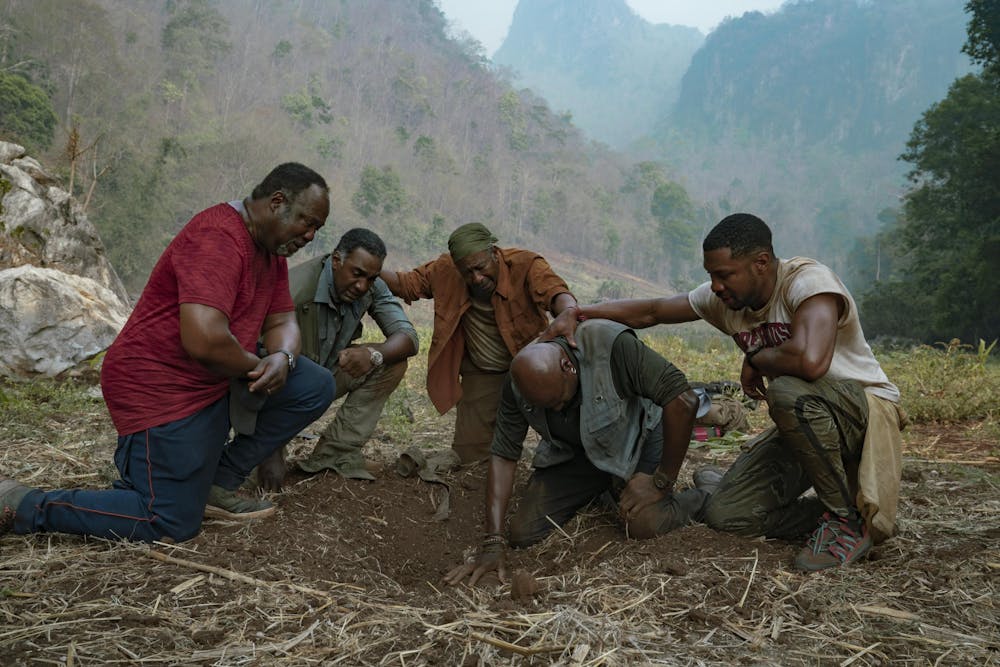Spike Lee is rarely one to disappoint.
The renowned director of “Do the Right Thing” and “BlacKkKlansman” has long been praised for his adept manipulation of the medium he works in, using unique constructions to tell unique stories. “Da 5 Bloods” is a continuation of this trend.
While fighting in the Vietnam War, a group of five Black soldiers — who dubbed themselves “Bloods” — found a crashed CIA plane full of gold bars, which were meant to be given to the local population in exchange for help fighting the Viet Cong. The Bloods decided to keep this gold for themselves, but were ambushed before they could get away with it. The group had a close bond to their leader, Norman (Chadwick Boseman), and his death during the raid left the remaining members emotionally scarred.
The other four Bloods — Paul (Delroy Lindo), Otis (Clarke Peters), Melvin (Isiah Whitlock Jr.) and Eddie (Norm Lewis) — reunite in the present day, returning to Vietnam after they heard news that the tail of the plane they found the gold in was recently discovered.
Otis’s wartime girlfriend Tiên (Lê Y Lan) introduces the Bloods to Desroche (Jean Reno), a businessman who agrees to help the Bloods smuggle the gold out of Vietnam after they recover it. The Bloods also hire a local guide, Vinh (Johnny Trí Nguyễn), to help lead them out into the countryside, and are later joined by Paul’s son, David (Jonathan Majors), with whom he has a testy relationship.
As is typical of any Spike Lee movie, the dialogue in “Da 5 Bloods” is exceptional — not only in terms of the writing, but also in the themes it conveys.
The movie does a great job to raise thought-provoking questions about the use of Black soldiers in frontline infantry divisions, with some of its characters even going so far as to suggest that this was done because they were seen as more disposable by the military establishment. The movie also contains criticisms of institutional racism and the treatment of Black people in the present-day United States.
There is no greater vehicle in the film for this frustration than Delroy Lindo. His impassioned portrayal of Paul — who offers strong, poignant critiques of the government that shipped him off to fight in the Vietnam War — is captivating. His embittered demands for any semblance of justice are topped off by a gripping, fourth-wall-breaking monologue in the film’s third act.
The performance gained another layer of complexity when Paul and his son shared the screen, as Lindo’s emotional portrayal of a flawed father was immensely heartfelt and relatable. The fact that he wasn’t nominated for Best Supporting Actor is almost criminal.




